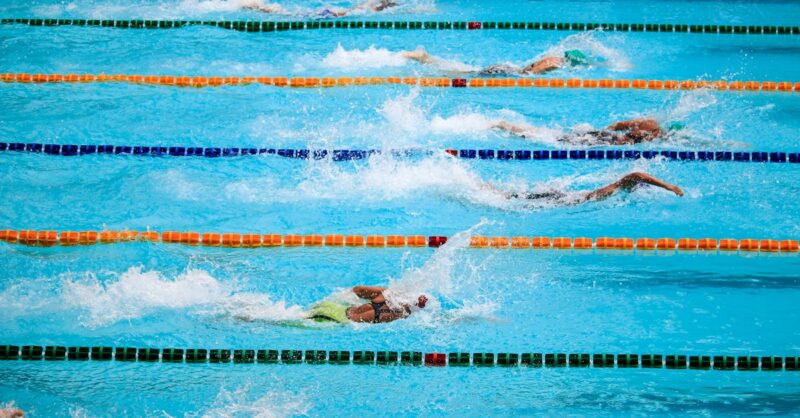
Tournament success calls for more than simply outstanding athletes. Winning teams are produced from a combination of preparation, cooperation, strategy, and support. Among the most important components is a strong team identity. When people come together around common ideals and objectives, they create a cohesive group equipped to meet obstacles together. Clear goals help to build resilience and unity by giving the team direction that keeps it concentrated even in trying circumstances. Here, leadership is absolutely important since good leaders motivate and mentor their subordinates, therefore influencing the general group tone. For fans tracking their favourite teams, 1xBet login offers insights into team statistics and performance, adding another layer of engagement to the experience.
The Role of Preparation and Practice
The basis of tournament success is preparation and regular practice. A team that spends time honing their abilities and researching their opponent’s tactics has a big advantage. Analysing past games, spotting areas of strength and weakness, and customising training sessions to target particular areas of development constitute part of effective preparation. Many times, coaches create drills modelled on actual game situations so that players may react naturally during games. Beyond only physical conditioning, mental preparation ensures that players approach events with confidence and concentration. Knowing that success is created long before the first whistle blows, the best teams treat practice as equally important as they do real competition.
Effective Communication on and off the Field
The glue keeping a team together is communication. Good and straightforward communication guarantees that everyone knows their part and responsibility, both on and off the pitch. Often depending on verbal cues, physical signs, or even non-verbal understanding gained through familiarity, players must rapidly and precisely transmit information throughout a game. Open communication off the pitch helps colleagues to build trust and close bonds. Effective teams also give active listening top priority, therefore guaranteeing that every member’s voice is heard. Whether through pre-game talks, post-game analysis, or team-building exercises, coaches are absolutely essential in helping to enable communication. Good communication among staff members and players helps them to make wise judgements and react quickly to evolving conditions.
Adapting to Pressure and Uncertainty
Events are sometimes erratic. There’s no secret that teams have to be ready to meet unforeseen obstacles. Even the most talented athletes might find high pressure challenging, yet effective teams thrive in keeping calm under duress. Combining mental toughness, confidence, and adaptability yields this capacity.

Even in the most difficult situations, players who can remain cool and concentrated are more likely to make logical decisions. Equally crucial is adaptability; teams that can change their plans midway through a game or overcome unanticipated challenges show resiliency that usually results in success. By means of simulated high-stress circumstances during training, athletes can develop the psychological resilience required to flourish under the greatest stakes.
The Importance of Physical and Mental Fitness
The physical and mental state of a team’s members determines its level of success. While mental fitness helps athletes manage the psychological and emotional demands of competition, physical fitness guarantees that players can perform at their best all through the competition. Players must strike a mix between enough rest and intense training. Elements of a good exercise program that are non-negotiable are nutrition, water, and sleep. Just as important is mental health; strategies for stress management, mindfulness, and access to sports psychologists can help athletes remain resilient and focused. Teams that give holistic health a priority often find they are more suited to meet the demands of events, both physically and emotionally.
Strategic Planning and Game Tactics
Any effective team depends on strategy. Entering contests with a well-defined game plan, meticulously crafted to maximise their advantages over their rivals, winning teams have While they remain adaptable enough to fit various situations, coaches closely interact with athletes to create strategies that fit their style of play. Often what distinguishes decent teams from outstanding ones is in-game changes. Strategic planning guarantees that a team stays competitive regardless of the situation by means of modification of formations, player roles, or particular set plays. A well-executed plan not only increases confidence but also shows that the team is prepared to outsmart their opponent.
Improving Individual Strengths for Team Success
Every participant offers special skills to the team, so group success depends on using these assets. Leaders and coaches have to discover ways to include each player’s particular strengths in the general team plan.

A defender with great speed, for instance, can be assigned to neutralise quick opponents; a player with keen tactical awareness might assume leadership during a pivotal point. Acknowledging and appreciating individual efforts not only raises team spirit but also makes a more flexible and dynamic team. Players who respect their particular skills are more driven to perform at their best.
Learning from Defeats and Setbacks
Though defeats are inevitable even for the most successful teams, their reaction to these challenges distinguishes them. Winning teams see losses as chances for development rather than as causes of shame. This approach depends critically on post-match evaluations, which let teams find mistakes and work towards corrections. Players and coaches work together to improve resilience, hone tactics, and overcome shortcomings. Reaching beyond obstacles calls for both a good attitude and a dedication to ongoing development. Teams that adopt this strategy usually come out stronger and turn their defeats into stepping stones for their next triumph.
Fan Support and External Motivation
The performance of a team might be much improved by the enthusiasm and support of its supporters. External motivation—from the roar of a home crowd to social media messages of support to the presence of devoted supporters at away games—plays a major part in raising morale. Teams that interact closely with their supporters can feel more driven since they know they are serving something more than just themselves. Sponsors and alliances can also supply further inspiration by means of tools and incentives meant to propel athletes to excellence. The relationship between a team and its supporters is a strong force capable of motivating remarkable successes.












